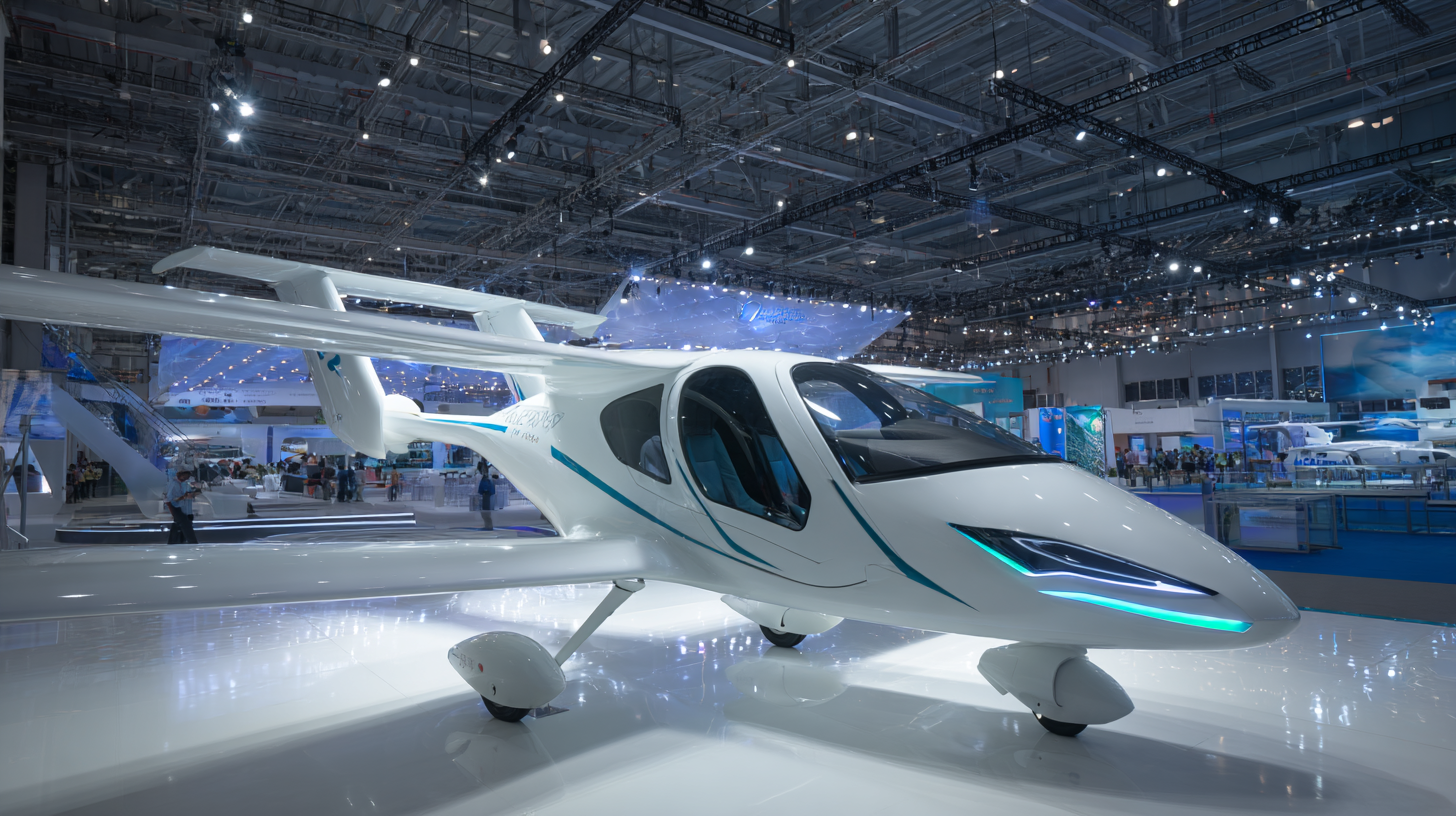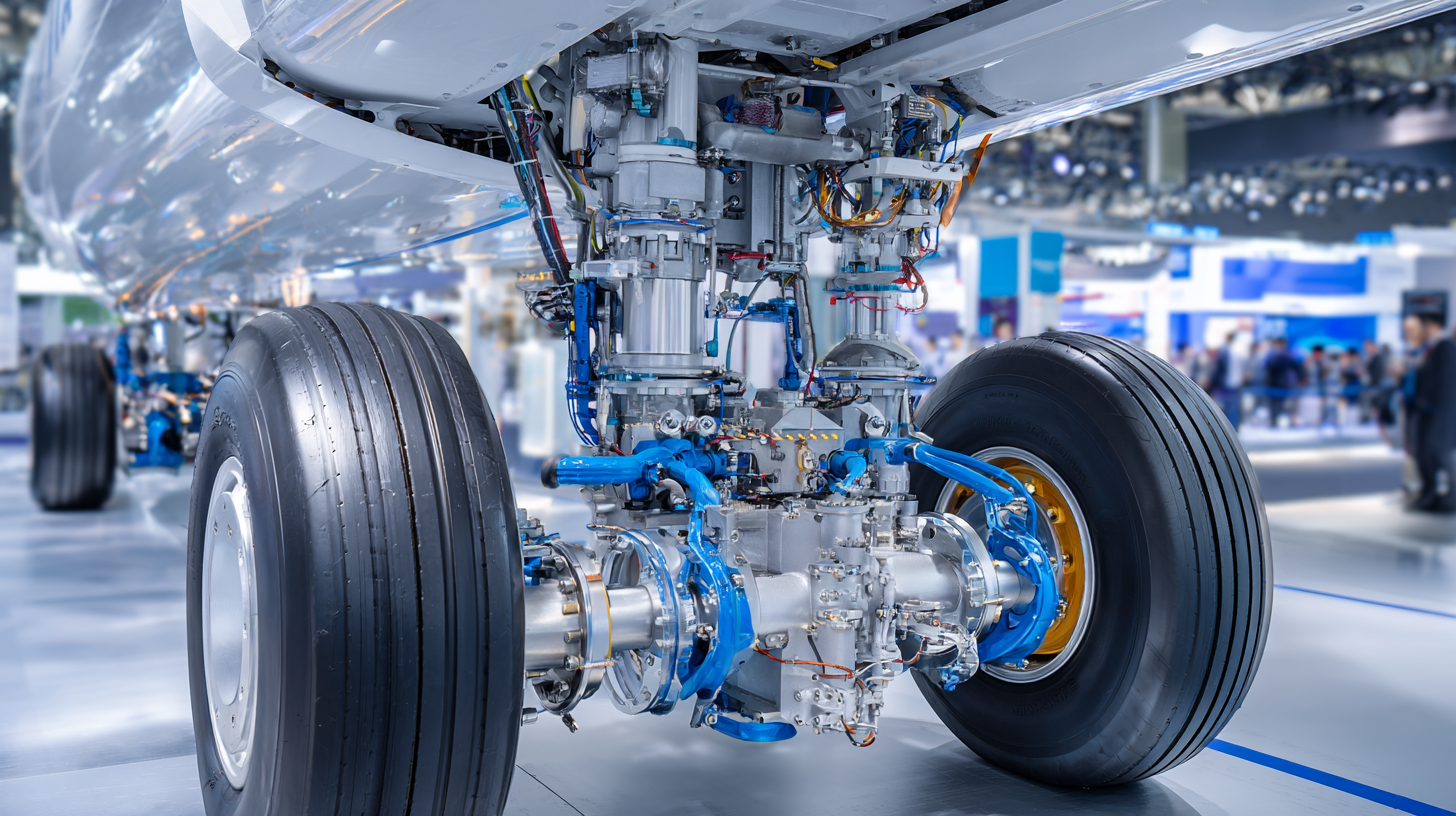Exploring the Future of Fuel System Aviation at the 138th Canton Fair 2025
As we look ahead to the 138th Canton Fair in 2025, the spotlight on fuel system aviation becomes increasingly significant in the context of global aerospace innovation and sustainability. According to the International Air Transport Association (IATA), the aviation industry is projected to see a demand for approximately 8.2 billion passengers by 2037, which amplifies the need for advanced fuel systems capable of improving efficiency and reducing emissions. Additionally, a report by MarketsandMarkets suggests that the aviation fuel systems market is expected to grow from USD 3.2 billion in 2020 to USD 5.5 billion by 2025, highlighting the urgent necessity for developments in this sector. The Canton Fair presents an invaluable opportunity to explore groundbreaking technologies, foster collaborations, and drive the momentum for eco-friendly fuel system solutions that will secure the future of aviation. Through this platform, stakeholders can engage in discussions about innovative designs and sustainable practices that will shape the next generation of fuel system aviation.

Innovative Technologies in Fuel Systems for Aviation at the Canton Fair 2025
The upcoming 138th Canton Fair in 2025 will showcase groundbreaking advancements in fuel systems for aviation, highlighting innovative technologies that promise to redefine the industry. With a heightened focus on sustainability and efficiency, companies are unveiling various solutions aimed at reducing carbon footprints and enhancing aircraft performance. The integration of electric-hydrogen technologies is set to take center stage, as partnerships between pioneering firms aim to push boundaries in clean aviation.
In addition to fuel cell systems, the fair will also explore new avenues in sustainable aviation fuel (SAF) supply chains. Collaborations among key players in the aviation sector are vital in developing robust solutions that incorporate SAF into mainstream aviation practices. This trend reflects a significant shift towards decarbonization, as industry leaders come together to brainstorm and implement strategies that will shape the future of aviation fuel systems. As these innovations are presented at the Canton Fair, attendees will witness firsthand the potential of these technologies to transform the landscape of air travel.
Sustainable Aviation Fuels: Trends and Impacts on the Aviation Industry
The aviation industry is on the brink of a transformative shift as sustainable aviation fuels (SAFs) gain momentum. At the 138th Canton Fair in 2025, discussions around SAFs will highlight their pivotal role in reducing greenhouse gas emissions and the industry's overall carbon footprint. Unlike traditional aviation fuels, SAFs are produced from renewable resources, including plant materials and waste. This innovative approach not only aims at aligning with global climate targets but also addresses the growing pressure to implement eco-friendly practices in air travel.
Furthermore, the adoption of sustainable aviation fuels carries significant implications for the aviation sector's economic landscape. As airlines look to meet stringent regulatory requirements and consumer demand for greener travel, the integration of SAFs is becoming imperative. This shift not only brings challenges, such as the need for infrastructure development and cost reductions, but also opens the door to new business opportunities and technological advancements. The 138th Canton Fair will serve as a crucial platform for stakeholders to explore collaborations and innovations that could pave the way for a more sustainable future in aviation.
Exploring the Future of Fuel System Aviation at the 138th Canton Fair 2025
| Aspect | Details |
|---|---|
| Current Trends | Increased investment in sustainable aviation fuels (SAFs), regulatory support, and technological innovations. |
| Type of Sustainable Fuels | Biofuels, synthetic fuels, and hydrogen as alternative energy sources for aviation. |
| Environmental Impact | Significant reduction in greenhouse gas emissions compared to traditional aviation fuels. |
| Economical Factors | Higher production costs of SAFs compared to conventional fuels, but potential for price reduction through scale. |
| Key Challenges | Infrastructure development, supply chain logistics, and ensuring sustainable sourcing of raw materials. |
| Future Projections | Widespread adoption of SAFs by 2030, aiming for net-zero emissions in aviation by 2050. |
The Role of Energy Transition in Shaping Aviation Fuel Systems by 2025
As the aviation industry progresses toward 2025, the energy transition is shaping the future of fuel systems significantly. Innovations in hydrogen fuel technology, particularly in clean production and efficient storage, are set to revolutionize aviation. Hydrogen-powered aircraft are anticipated to not only reduce emissions but also enhance performance with electric propeller systems driven by hydrogen fuel cells. This shift towards hydrogen presents a zero-emission alternative that could redefine air travel as we know it.
While transitioning to hydrogen, it's crucial to recognize the importance of sustainable aviation fuel (SAF). Countries like South Korea, with robust recycling systems, could lead the way in producing SAF. Research indicates that adopting SAF can reduce lifecycle greenhouse gas emissions by up to 80% compared to traditional jet fuel. Integrating electrification and digitalization into aviation also opens new avenues for enhancing operational efficiency and reducing dependency on fossil fuels.
**Tips:** To stay informed about the latest innovations in the aviation fuel sector, consider following industry reports and attending aerospace conferences. Engaging in discussions about renewable energy sources can also provide insight into future developments in sustainable aviation practices.

Insights from Key Industry Leaders: Fuel System Innovations and Challenges
As the aviation industry continues to evolve, the 138th Canton Fair 2025 serves as a pivotal platform for discussing fuel system innovations and the challenges that accompany them. Key industry leaders are expected to share their insights on sustainable fuel options, advanced propulsion technologies, and the integration of renewable resources. One significant topic will be the transition to biofuels and how they can dramatically reduce carbon emissions while maintaining operational efficiency.

Moreover, discussions will highlight the hurdles faced in the implementation of these innovations, such as infrastructure limitations, cost implications, and the need for training programs to equip personnel with new skills. Addressing these challenges is crucial for ensuring a smooth transition to more sustainable aviation practices, and leaders will propose strategies to overcome potential roadblocks.
Tips: Companies should invest in pilot projects to test new fuel systems on a small scale, helping to identify unforeseen issues and streamline large-scale adoption. Networking at events like the Canton Fair can also facilitate partnerships and knowledge sharing, crucial for navigating the complexities of this transition.
Networking Opportunities and Collaborations at the 138th Canton Fair for Aviation Fuel Systems
At the upcoming 138th Canton Fair in 2025, the aviation industry is poised for transformative networking opportunities, particularly in the realm of fuel systems. As the global demand for aviation continues to soar, projected to reach 8.2 billion passengers by 2037 according to the International Air Transport Association, innovative fuel solutions are essential. This fair presents a unique platform for industry leaders, startups, and researchers to collaborate on developing sustainable and efficient aviation fuel systems.
Networking at the Canton Fair can be particularly advantageous. It enables participants to connect with potential partners in research and development, regulatory bodies, and investors. By fostering such relationships, companies can gain insights into the latest technological advancements and regulatory changes shaping the future of aviation fuel. According to the latest market research, investments in sustainable aviation fuel (SAF) are expected to grow exponentially, with the market forecasted to reach $15 billion by 2030. Engaging with innovative minds at the fair could be the key to capitalizing on this burgeoning sector.
Tips: While attending, ensure you have a well-prepared pitch about your offerings in aviation fuel systems. Have literature ready to distribute that outlines your company’s innovations. Additionally, actively participate in panel discussions related to sustainability and technological advancements to enhance visibility and establish your brand as a thought leader in the industry.
